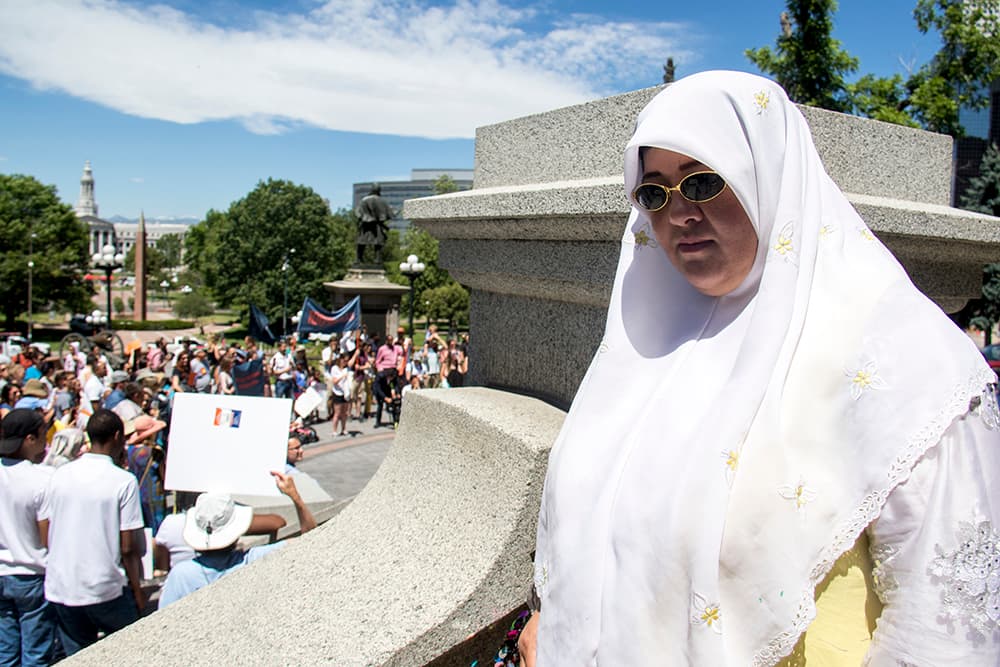The people who resettle refugees in and around Denver were busy before the American government pulled its military out of Afghanistan, but they expect to get busier.
"We're waiting and watching," said Jennifer Wilson executive director of the International Rescue Committee's Denver office. "We had been receiving an increase in Afghans -- all refugees, actually, but Afghans in particular over the last several weeks and we were preparing for quite a few more."
But Wilson does not know how many. She said that "tens of thousands" of Afghans could be eligible to come, but the well-documented back log of visa applications and the Taliban's takeover of Kabul have complicated who can come here and when. As of Wednesday afternoon, Taliban forces were blocking the city's airport after initially letting some flights leave.
"We are really urging the administration to ensure that we stay focused on those who supported the U.S. mission, who would be eligible for special immigrant visas, to maintain a diplomatic presence in Afghanistan so that we can ensure that those who should be afforded protection are able to access it," Wilson said.
Between October 2020 and July 2021, Afghan immigrants accounted for more than 40 percent of Colorado's "new arrivals," or people who came to the state as refugees and on special immigrant visas like the ones given to interpreters who worked for the United States military, according to the Colorado Department of Human Services.
People from Afghanistan comprised the biggest group of new arrivals by far. Denver and Colorado Springs both have a growing number of Afghan residents, Wilson said.
But when they get here, some face a very Denver problem: housing.
"We are, like pretty much every other city in the United States, facing a housing crisis, and there is no special support or special program for refugees coming in," Wilson said. "They do face a lot of challenges."
It can take a year to get people into permanent housing that is also affordable, she said. Though caseworkers estimate that clients get permanent housing between two and four weeks after the resettlement agency is notified of their flight to Denver.
Wilson says the International Rescue Committee and the other big resettlement agencies, African Community Center and Lutheran Family Services, "get creative" with housing people who often come without a Social Security number or a credit score. The agencies essentially rely on nice landlords and property managers, Wilson said.
Another challenge new (and existing) Afghan refugees may face is reuniting with their families, said Atim Otii, director of the Denver Office of Immigrant and Refugee Affairs, which supports the resettlement agencies, among other things.
Otii plugged the Denver Immigrant Legal Services Fund, which helps refugees and other immigrants clear legal hurdles and get family members into the country.
"They may need certain immigration processes to try to assist their family members who are either back in Afghanistan, or likely in other countries, for processing to come to the United States," Otii said. "And in most cases, we would say that you should have a competent legal provider to help you with that process."
The fund has helped about 470 people so far, Otii said.
While plenty of Afghan refugees have made their home in the city proper, Otii said they're spread across the region and state.
And wherever they land, they face serious uncertainty. Jobs, schools, language -- everything is different and new, Wilson said. And it's not some idyllic American Dream situation. It's a situation wrought of survival.
"We're going to work a long-term to help you get beyond that point, because ultimately we want people to thrive and to be able to contribute everything that they know they bring and have to give to their communities and to our state and this country, but it's not an easy road," she said. "I think it's an interesting thing when people kind of take the line of people coming here and trying to, you know, take opportunities or, to get what they can from the system.
"It's really -- it's a tough experience. No one will ever tell you that it's easy to resettle and rebuild your life. Safety is the main thing."
What you can do to help
Here are some things that resettlement agencies and others recommend:
Volunteer to help people get to know their new city and neighborhood. Cultural mentors might help people understand their bills, for example, or their bus routes -- basic everyday things that aren't always basic. Lutheran Family Services, African Community Center and International Rescue committee Denver all have programs.
"That's huge need," Wilson said. "And we know that whether they were born in America or not, when people from different backgrounds and experiences connected with refugees become their friends, ultimately it helps refugees integrate and help them come to the place where they feel like this is their home."
You can also deliver food and other, less extroverted stuff.
Donate money to International Rescue Committee Denver, Lutheran Family Services Rocky Mountains, and/or African Community Center.
Donate to the Denver Immigrant Legal Services Fund.
Check out Colorado Refugee Connect for other ideas.
This article has been updated to clarify that it can take a year to attain permanent affordable housing as opposed to just permanent housing.













